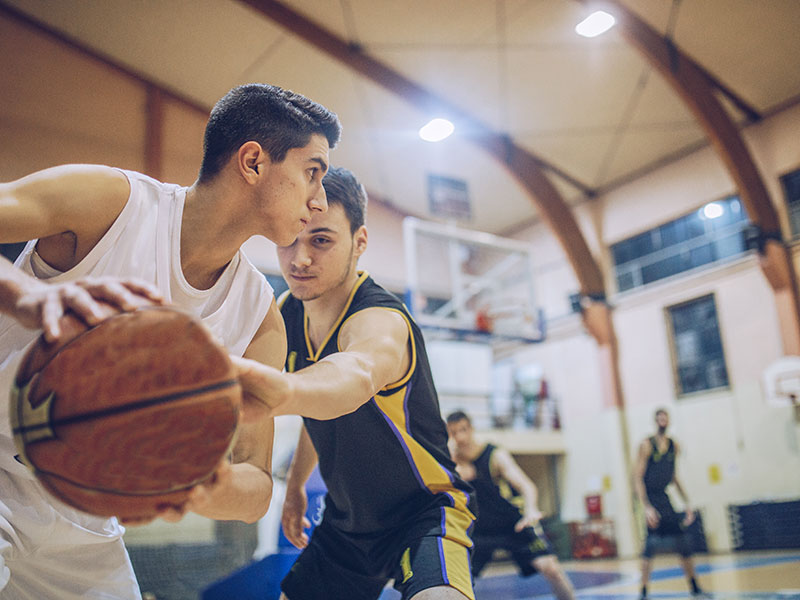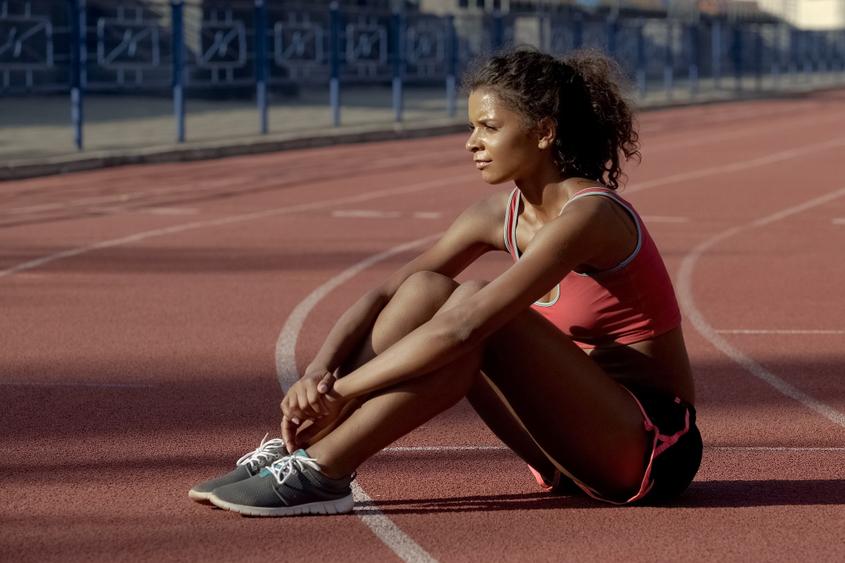Performance psychology is a specialized branch of psychology that focuses on understanding and enhancing an individual’s ability to perform consistently under pressure. Within the context of sports, performance psychology is pivotal in helping athletes manage stress, overcome mental obstacles, and maintain focus during critical moments in competition. This discipline addresses both the psychological and emotional aspects of performance, providing tools and strategies to optimize an athlete’s mental state.
Core Principles of Performance Psychology
- Mental Preparation: Teaching athletes how to mentally prepare for competitions through visualization, goal-setting, and relaxation techniques.
- Focus and Attention Control: Helping individuals improve concentration by filtering out distractions and maintaining focus on their goals.
- Emotional Regulation: Assisting athletes in managing emotions such as anxiety, frustration, or over-excitement to ensure peak performance.
- Resilience Building: Providing strategies for bouncing back after setbacks or poor performances.
How Performance Psychology Supports Athletes
- Strengthens an athlete’s ability to handle high-pressure situations.
- Encourages persistence even in challenging circumstances.
- Reduces susceptibility to burnout or stress-induced errors.
- Promotes clarity of thought during competitions.
- Minimizes performance fluctuations by establishing mental routines.
- Helps maintain optimal levels of motivation.
- Teaches athletes relaxation techniques such as mindfulness or deep-breathing exercises.
- Helps them recognize triggers for stress and develop coping mechanisms.
- Provides tools for setting realistic yet challenging goals.
- Ensures that short-term objectives align with long-term athletic aspirations.
Tools Used in Performance Psychology
| Tool/Technique | Purpose | Example Usage |
| Visualization | Enhances focus by imagining successful outcomes | Visualizing a perfect penalty kick in soccer |
| Cognitive Behavioral Therapy (CBT) | Identifies negative thought patterns | Reframing self-doubt into positive affirmations |
| Biofeedback | Monitors physical responses like heart rate | Managing anxiety before a race |
| Goal Setting Frameworks | Breaks down goals into actionable steps | Creating daily practice objectives |
The Broader Impact on Athletes’ Lives
- Builds confidence that carries over into academics or careers.
- Improves interpersonal relationships by teaching communication skills.
- Enhances resilience applicable outside the sports arena.
By addressing the intricate connection between mind and body, performance psychology not only helps athletes achieve their personal best but also fosters well-rounded individuals capable of handling life’s challenges effectively.
Unlocking Peak Athletic Performance with a Sports Psychologist McLean, VA
Peak athletic performance is the result of a combination of physical training, skill development, and psychological optimization. While athletes often focus heavily on physical abilities such as strength, endurance, and agility, their mental state plays an equally critical role in determining success. Understanding how psychology influences peak performance can provide athletes with tools to gain a competitive edge and perform consistently under pressure.
Key Psychological Factors in Sport Performance Training in McLean, VA
Mind Balance Sport Psychologists in Mclean, VA
1355 Beverly Rd suite 225, McLean, VA 22101, United States
+17039121776
- A tennis player must focus on each serve despite external distractions.
- A basketball player shooting free throws in a noisy arena must rely on mental discipline to avoid breaking concentration.
- Confidence stems from preparation, practice, and past successes. Athletes who believe in their abilities are more likely to push through challenges and recover after setbacks.
- Intrinsic Motivation: Competing for personal satisfaction or growth.
- Extrinsic Motivation: Being driven by external rewards such as medals or recognition.
- Athletes often face immense pressure during competitions. Stress management techniques like controlled breathing, visualization, and mindfulness can help manage nerves and prevent stress from impacting performance negatively.
- The ability to bounce back from failures or injuries is crucial for long-term success in sports. Resilient athletes tend to approach setbacks as learning opportunities rather than obstacles.
Sports Mental Coach in McLean, VA: Psychological Strategies for Peak Performance
Find some top sports psychologists on WordPress.
- Visualization: Athletes mentally rehearse successful performances before stepping onto the field or court.
- Goal Setting: Setting clear short-term and long-term goals fosters motivation and provides direction.
- Mindfulness Training: Practicing mindfulness helps athletes stay present and avoid being overwhelmed by negative thoughts.
- Self-Talk Regulation: Monitoring internal dialogue ensures that an athlete’s self-talk remains positive and supportive rather than self-critical or defeating.
- Routine Development: Pre-performance routines help create a sense of familiarity that can reduce anxiety during high-pressure situations.
Exploring Sports Psychiatry in McLean, VA and Building Mental Toughness
| Trait | Description | Example |
| Emotional Control | Remaining composed under pressure | Staying calm after a missed shot |
| Commitment | Maintaining dedication to long-term goals despite temporary setbacks | Continuing rehab after injury |
| Confidence | Believing in one’s ability even when facing adversity | Taking risks during critical moments |
| Focus | Blocking out distractions and staying present | Ignoring crowd noise |
Understanding the intricate relationship between mental processes and athletic performance not only enhances outcomes but also promotes long-term growth for individuals competing at all levels of sport. By integrating psychological principles into training programs, athletes can unlock new levels of achievement while maintaining balance both on and off the field.
Unlocking Peak Athletic Potential Through Performance Psychology in McLean, VA
Peak athletic performance is not solely about physical prowess. While strength, agility, and endurance are important, the mental game plays an equally significant role. Understanding the psychological components that contribute to peak performance can help athletes unlock their full potential and maintain consistency in high-pressure situations.
How Sports And Performance Psychology in McLean, VA Impacts Peak Performance
- Motivation drives athletes to train harder, compete effectively, and overcome setbacks.
- Intrinsic motivation (driven by personal goals or passion) often leads to sustained effort compared to extrinsic rewards like trophies or recognition.
- Developing a clear sense of purpose can enhance long-term motivation.
- Maintaining focus during competition is critical for decision-making and execution.
- Distractions—whether external (crowd noise) or internal (self-doubt)—can reduce performance quality.
- Techniques like mindfulness training or visualization exercises help enhance concentration skills.
- Confidence stems from self-belief in one’s abilities, preparation, and prior successes.
- Building confidence involves setting realistic goals, positive self-talk, and reflecting on achievements rather than failures.
- Resilient athletes bounce back from setbacks or defeats with renewed determination.
- Mental toughness enables individuals to stay calm under pressure while maintaining peak performance levels.
- Practices such as reframing negative thoughts into constructive ones are key components of resilience-building strategies.
- Managing emotions like anxiety, fear of failure, or frustration is essential for optimal performance.
- High-pressure scenarios often trigger stress responses that can impair decision-making.
- Breathing techniques, progressive muscle relaxation (PMR), and mindfulness aid emotional control.
Finding the Best Sports Psychologist Near Me: Tools and Techniques Explained
| Tool/Technique | Description |
| Goal Setting | Helps athletes establish measurable short- and long-term objectives. |
| Visualization/Imagery | Guides athletes in mentally rehearsing success scenarios before events. |
| Cognitive Behavioral Therapy | Addresses unhelpful thought patterns that hinder performance improvement. |
| Relaxation Techniques | Includes methods like deep breathing or meditation to manage stress levels. |
Common Psychological Barriers Athletes Face
- Fear of Failure: Athletes may hesitate due to the fear of making mistakes or losing.
- Perfectionism: Striving for unattainable standards can lead to burnout.
- Self-Doubt: Negative self-perception can lower confidence levels in critical moments.
- Overthinking: Excessive analysis disrupts instinctive responses during play.
Strategies for Sustained Peak Performance
- Develop a routine for mental preparation before competitions.
- Incorporate regular rest periods to prevent fatigue and burnout.
- Use constructive feedback after each performance instead of dwelling on mistakes.
- Engage in activities outside sports for balanced mental health development.
Athletes who invest time into understanding their psychological strengths and weaknesses can elevate their performances both on the field and off it by fostering habits built on discipline, emotional intelligence, and resilience toward challenges they face regularly within competitive environments.
A Brief History and Evolution of Performance Psychology in Sports
Performance psychology in sports has a rich and fascinating history that has evolved significantly over the past century. This field, which focuses on understanding and improving the mental factors that influence athletic performance, has transitioned from being a niche area of interest to a well-respected branch of sports science. Below is an exploration of its origins, key milestones, and current trends.
Early Beginnings: The Roots of Sports Psychology
- Norman Triplett (1898): Widely considered one of the first documented studies in sports psychology, Triplett examined how the presence of others influenced cycling performance. His findings laid the groundwork for understanding competition and motivation.
- Coleman Griffith: Often referred to as the “Father of Sports Psychology,” Griffith conducted pioneering research in the 1920s and 1930s. He established one of the first laboratories dedicated to studying psychological aspects of athletic performance and worked with professional athletes, including baseball players.
Growth During the Mid-20th Century
- Post-War Developments: After World War II, psychologists began applying techniques such as goal-setting, visualization, and relaxation training to enhance athletic success.
- Professionalization of Coaching: The rise in organized coaching programs saw increasing recognition that mental preparation was as important as physical training.
- Olympic Influence (1960s–1970s): The Cold War era saw nations like the USSR emphasizing psychological training for their athletes to gain a competitive advantage during international competitions.
| Key Developments | Focus Areas |
| Research on Motivation | Understanding what drives athletes |
| Mental Skills Training | Techniques like imagery and self-talk |
| Application in Team Sports | Group dynamics and leadership |
Modern Advancements: Integration into Mainstream Sports
- Virtual reality (VR) tools for immersive visualization.
- Wearable sensors that monitor stress and focus levels.
- Emphasis on mental health alongside performance optimization.
- Collaboration between psychologists, nutritionists, coaches, and physiotherapists.
- Adoption by youth teams and amateur athletes.
- Application across various domains like business leadership or performing arts.
Challenges Faced by Early Practitioners
Despite its growing acceptance today, early practitioners battled skepticism from both athletes and coaches. There were misconceptions about sports psychologists being necessary only for struggling performers or those with mental health issues. Over time, however: – Rigorous scientific evidence validated their methods. – High-profile endorsements from successful athletes helped normalize seeking psychological support.
Today’s field reflects decades of growth spurred by research breakthroughs, cultural shifts around mental health awareness, and technological innovation. This evolution underscores how deeply interconnected human psychology is with achieving peak physical results—cementing its role within modern sports science practices worldwide.
How Ethics Play a Crucial Role in Sports Psychology Practices
Ethics form the foundation of any professional discipline, and sports psychology is no exception. Given the intimate and impactful nature of the psychologist-athlete relationship, maintaining ethical standards is critical to fostering trust, ensuring effective interventions, and safeguarding the well-being of athletes. The stakes are high when working with individuals whose mental readiness can directly affect their performance and long-term career trajectory. Below, we explore how ethics contribute to effective sports psychology practices.
Core Ethical Principles in Sports Psychology
- Athletes must feel confident that their personal information will remain private. Breaches in confidentiality can not only damage trust but may also harm an athlete’s career if sensitive information becomes public.
- Psychologists often navigate tricky boundaries, such as a coach requesting behavioral insights about an athlete. In these cases, strict adherence to confidentiality is crucial unless disclosure is explicitly permitted by the athlete.
- Before engaging with an athlete, psychologists must provide clear information about their methods, goals, and potential risks. This ensures that athletes have a comprehensive understanding of what to expect from their sessions.
- Psychologists must maintain professional boundaries and avoid relationships that could impair objectivity or exploit athletes’ trust. For example, serving simultaneously as a psychologist and a coach poses significant ethical risks.
- Practitioners are bound by ethical codes to operate within their field of expertise. For example, if a sports psychologist lacks training in trauma counseling but identifies signs of post-traumatic stress in an athlete, they should refer the individual to an appropriate specialist.
Challenges in Ethical Practice
| Ethical Challenge | Example Scenario | Recommended Action |
| Confidentiality vs Team Goals | A coach demands insight into an athlete’s mental state before selecting them for competition | Explain confidentiality policies and suggest team-wide psychological strategies |
| Pressure from Sponsors | Sponsors push for updates about an athlete’s progress during therapy | Refuse disclosure unless explicitly agreed upon by the athlete |
| Managing Conflicts of Interest | Being hired by both an athlete and their rival team or competitor | Decline overlapping roles or provide full transparency regarding conflicts |
Why Ethics Matter for Athlete Well-being
- Trust Is Strengthened: Athletes are more likely to openly share concerns when they believe psychological services operate with integrity.
- Performance Improves: A safe therapeutic environment allows athletes to address limiting beliefs without fear of judgment or exploitation.
- Professional Standards Are Upheld: Strong ethics ensure sports psychologists maintain credibility within both athletic communities and broader society.
The intersection of ethics with sports psychology practices fosters healthier outcomes for individuals while shaping the profession itself toward higher levels of accountability and care.
Everyone Is a Performer: Applying Psychological Principles to Sports
Performance psychology is not limited to elite athletes or professional performers. The principles of sports psychology can be applied universally, as everyone engages in performance-related activities in various aspects of life. Whether it’s preparing for a business presentation, excelling in academics, or managing high-pressure situations, the foundational strategies used by athletes can help individuals optimize their mental approach and achieve their personal best.
Key Psychological Principles for Performance
- Clearly define short-term and long-term objectives.
- Use SMART goals (Specific, Measurable, Achievable, Relevant, Time-bound) to track progress effectively.
- Break down goals into actionable steps.
- Practice vividly imagining success or executing specific actions.
- Create mental scenarios to prepare for different challenges or stressors.
- Rehearse performance mentally to improve confidence and focus.
- Replace negative thoughts with constructive and empowering affirmations.
- Develop awareness of inner dialogue during high-stakes moments.
- Use self-talk techniques to counter self-doubt and build resilience.
- Learn techniques like mindfulness meditation to stay present during tasks.
- Avoid distractions by breaking tasks into manageable timeframes (e.g., Pomodoro technique).
- Prioritize what matters most by applying concentration strategies used by athletes.
- Utilize breathing exercises such as diaphragmatic breathing or box breathing during stressful moments.
- Engage in physical activity regularly to reduce cortisol levels.
- Practice gratitude journaling or progressive muscle relaxation for emotional balance.
Applying Sports Psychology Beyond Athletics
| Domain | Psychological Application |
| Business | Managing public speaking anxiety through visualization techniques |
| Education | Enhancing test-taking skills using goal-setting and focus strategies |
| Performing Arts | Overcoming stage fright with relaxation practices |
| Healthcare | Maintaining composure under pressure in high-stakes medical settings |
Why Everyone Is a Performer
Performance is not just about winning medals or breaking records; it is about overcoming challenges, achieving growth, and striving toward excellence in any endeavor. Sports psychologists understand that the mental skills honed on the field are equally relevant in classrooms, boardrooms, theaters, or even day-to-day routines.
By embracing these psychological tools used by athletes, individuals can enhance their mental strength and adaptability—qualities essential not only for success but also for personal fulfillment across all areas of life.
- How Sports Counselling McLean, VA Can Boost Athletic Performance
- Discover the Social and Psychological Benefits of Team Sports for Kids with Sports Counselling McLean, VA
- Exploring Sports Counselling McLean, VA: Boosting Teen Wellness Through Mental Health Support
- Sports Psychologist McLean, VA: Unlocking Mental Resilience for Peak Performance
- Discover How a Sports Psychologist McLean, VA Can Boost Athletic Performance
- Enhancing Athletic Success and Well-Being with Sports Counselling McLean, VA
- How a Sports Psychologist McLean, VA Helps Kids Overcome Performance Anxiety and Thrive
- How Sports Counselling McLean, VA Can Enhance Athletic Performance







